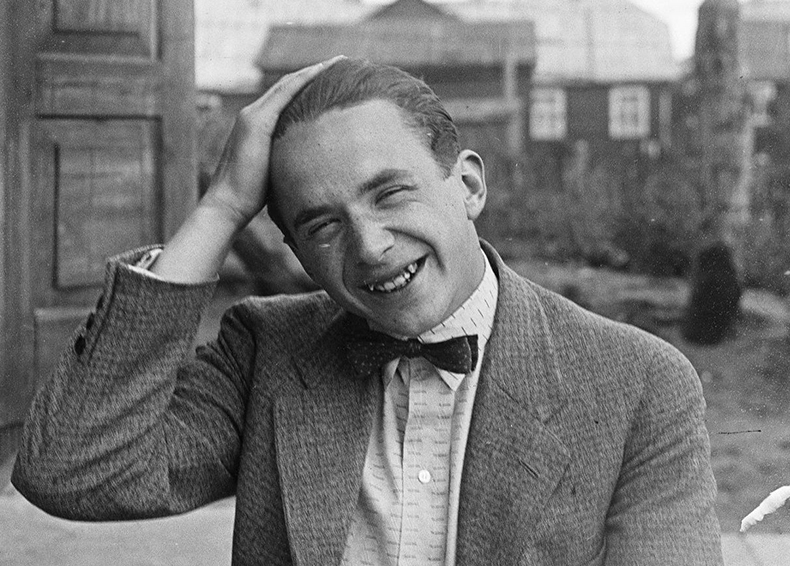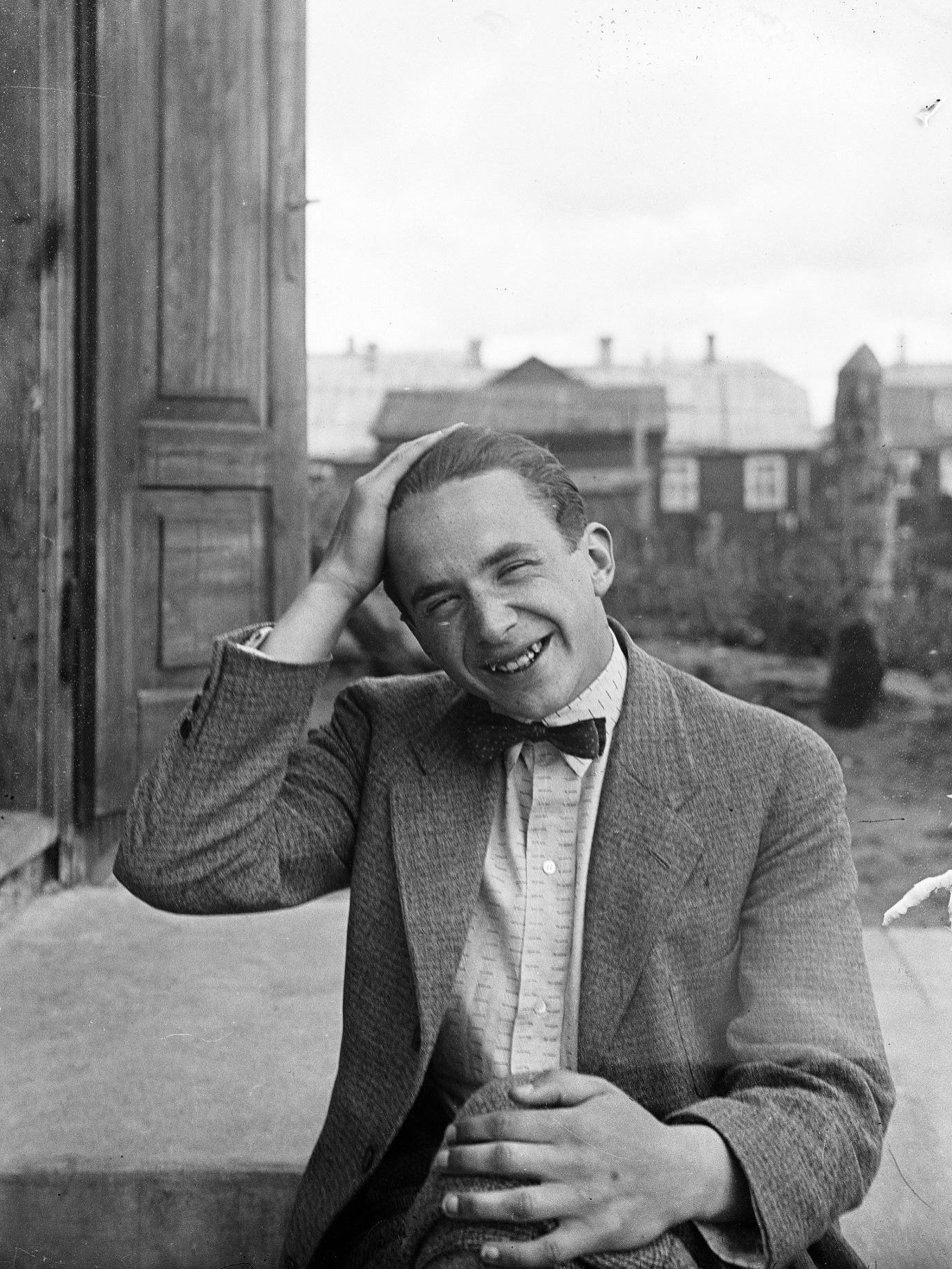Henry Parland

Nelli Mažitova
2019-09-10
Helene Holzman
2019-09-17


Henry Parland
Once upon a time in Kaunas. On 6th May 1929, one of the most dramatic moments of the interwar period happened: assassination of Prime Minister Augustinas Voldemaras was attempted at the city garden. His nephew and captain L. Virbickas were both hurt next to the theatre door, the clothes of Mrs. Voldemarienė got shot through, while his aide P. Gudynas was killed on the spot. After the assassination attempt, the police inspected all foreigners that arrived at Kaunas that day. In one hotel, they found a hungover young man from Finland. This inability to wake him up quickly convinced the policemen of his innocence...
This young man was Henry Parland, a writer born in Vyborg. Having become famous after publishing his collection of modernist poems in his homeland, the poet immersed himself in a bohemian life. Concerned parents sent their son to Kaunas, where he was supposed to be looked after by his uncle and professor of philosophy Vasily Seseman, away from the temptations of boisterous life. Just after his arrival to Kaunas, Parland wrote to his parents:
Kaunas is not as a hole as you have thought it to be. It is a city with wonderful nature, endless space, electricity, buses, Jews and lots of poor-quality coffee.
However, Parland found some bohemian life in Kaunas as well:
To be honest, there are no more horrible drunks than Lithuanian poets, and they accepted me with open hands. I also taught them to drink tea with vodka and it seems that it has a very strong effect on the non-Finnish people. I remember a funny yet uncomfortable situation last week, when I had to prop up young men against the lamp posts on the main street of Kaunas in a long queue, and then look for a car that could take them from there. They stood obediently, clinging to the posts and only sometimes, they would fall, and I had to put them back.
Antanas Venclova recalled the following adventure of the writer in Kaunas:
On the very first Sunday, when the wife of Blazas was gone somewhere, a cheerful company came back from the city – the owner of the apartment with a Finnish poet Henry Parland /.../ and another couple of great men. One of them, a more sober one, announced that they came here, because Parland felt bad and he does not want to sleep but he really needs to have some sleep. At the dining room, Parland was forcefully laid on the couch and I was asked to make sure he would not run away anywhere. /…/ The guest finally became calmer /…/ and those who came continued partying. Parland was with his eyes closed, breathing calmly, murmuring something in German under his nose about die europaische Kultur. I went to my room. When I came back after an hour, I saw that he brought from a balcony a long rough board, placed it across the room, while he, himself, stood in the balcony and threw the remaining flowerpots of Mrs. Blazienė straight to the street. I tried to talk to him, but he did not want to talk and continued to carry on with his work very seriously. When the final pot was down, Parland returned to the room, took flowerpots from tables and windowsills, threw out them as well...
While in Kaunas, the writer started writing his first novel To Pieces (se. Sönder), but did not manage to finish it: he died from scarlet fever at the young age of 22. The writer was buried in the Old Cemetery of Kaunas, the Lutheran part (now Ramybės Park).
Based on:
A. Venclova, Jaunystės atradimai, 1966, Vilnius.
Read More
Once upon a time in Kaunas. On 6th May 1929, one of the most dramatic moments of the interwar period happened: assassination of Prime Minister Augustinas Voldemaras was attempted at the city garden.


